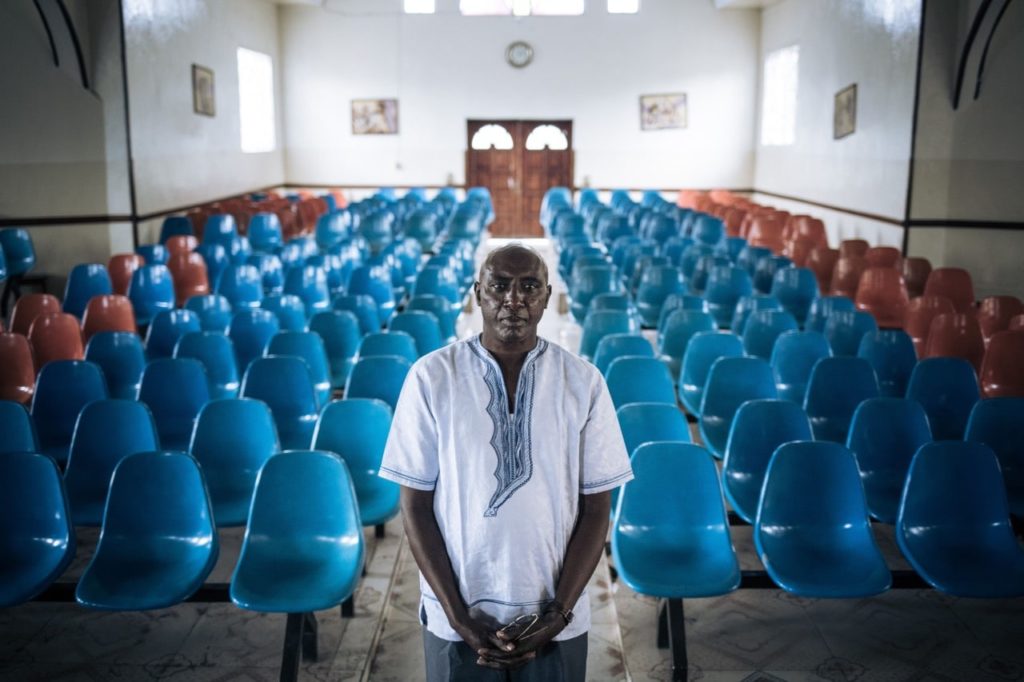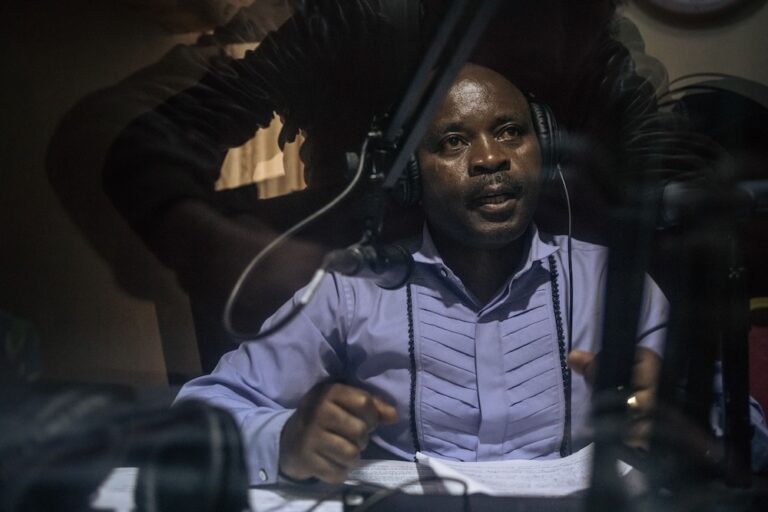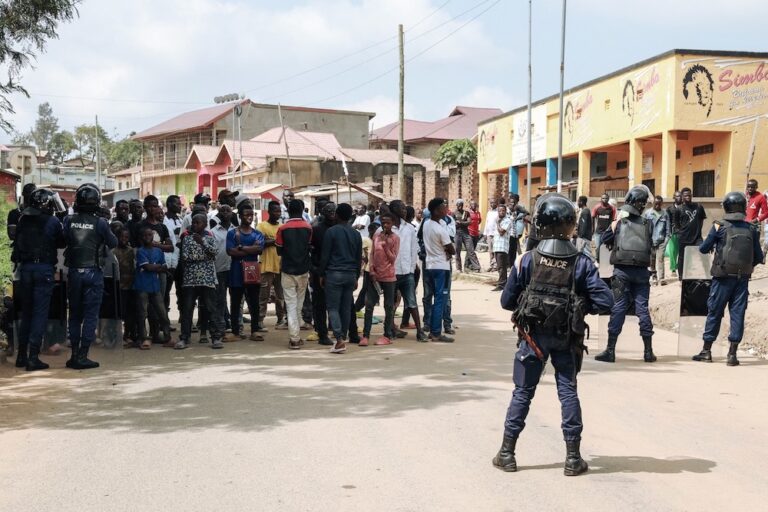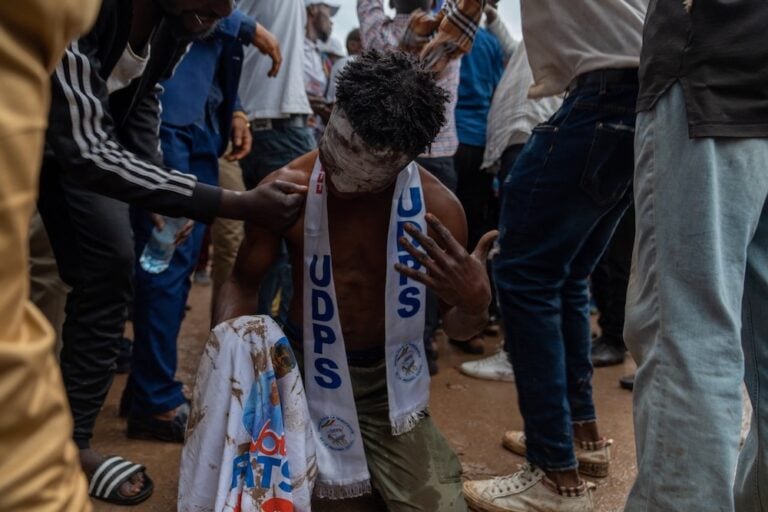TV reporter Tholi Totali Glody was run over by Democratic Republic of Congo police while covering the lockdown in Likasi, the second-largest city in the Haut-Katanga province.
This statement was originally published on rsf.org on 26 March 2020.
Reporters Without Borders (RSF) condemns the use of violence by police against a reporter who was covering a coronavirus lockdown in the Democratic Republic of Congo, and urges the authorities to allow journalists who respect public health requirements to keep working at a time when reliable, independent reporting is needed more than ever.
TV reporter Tholi Totali Glody was run down by police in Likasi, the second-largest city in Haut-Katanga province, on 24 March while using a motorcycle taxi to cover compliance with a two-day lockdown declared in the province by the governor on the evening of 22 March as a result of two suspected coronavirus cases.
Glody works for one of Likasi’s leading TV stations, Alfajari TV, whose programme director told RSF that, after explaining to two policemen that he was covering respect for the lockdown, Glody was chased by the police and knocked off the motorcycle, breaking a leg and sustaining injuries to his face and an arm.
“We unreservedly condemn the extreme violence of this attack on a journalist who was just doing his job and was fulfilling absolutely essential reporting duties during a worldwide pandemic,” said Arnaud Froger, the head of RSF’s Africa desk. “We urge the Congolese authorities to do what many other countries have already done, which is to include journalists in the official list of persons allowed to circulate freely to do their job while respecting the recommended basic public health measures. Attacking reporters at such a time not only violates press freedom but also undermines the ongoing response. Those responsible for this act of violence must be identified and punished.”
The DRC reported a total of 48 cases of coronavirus and two coronavirus deaths on 24 March, when President Félix Tshisekedi declared a national state of emergency and announced a ban on any travel between the rest of the country and the capital, Kinshasa, where most of the cases originated.
The DRC is only now just recovering from an epidemic caused by the Ebola virus, which left 2,200 dead in the east of the country. A journalist was murdered, other journalists were threatened and a radio station was torched for broadcasting programmes about Ebola prevention measures that were unpopular with some of the public and armed groups. There was no response from the UN, WHO or Congolese authorities to RSF’s requests for them to provide support and protection to these journalists and media outlets, who were collateral victims of the epidemic.
The DRC is ranked 154th out of 180 countries in RSF’s 2019 World Press Freedom Index.



